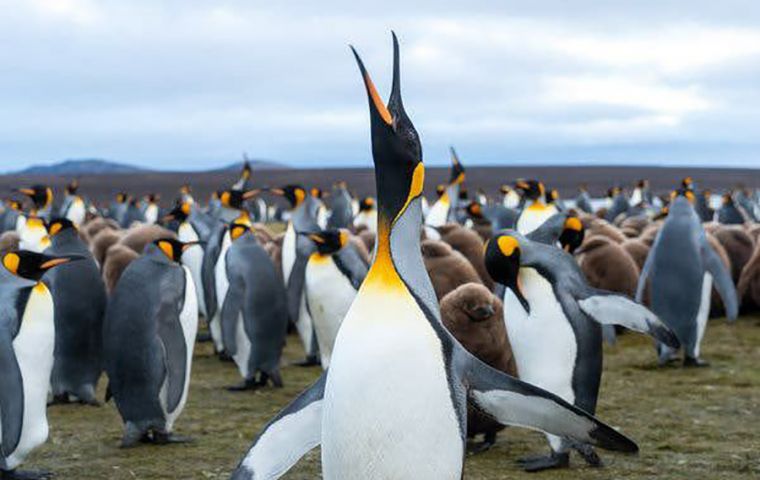MercoPress. South Atlantic News Agency
Falklands’ inshore waters recognized as globally significant seabird hotspot
 Sites within the Key Biodiversity Areas, KBA, which were noted as of particular importance were the rich waters around the Jason Islands, New Island, Bird Island and Saunders Island
Sites within the Key Biodiversity Areas, KBA, which were noted as of particular importance were the rich waters around the Jason Islands, New Island, Bird Island and Saunders Island A Falklands Conservation project has identified the Falklands Islands’ inshore waters as globally recognized Key Biodiversity Areas (KBA) for breeding seabirds, driving forward their aim for quality marine management practices in the Islands.
The inshore waters of the Falkland Islands are important breeding grounds for numerous seabird populations, however, these are coming under increasing pressure from climate change and the potential threats of environmentally unsustainable development.
The work hopes to support the development of quality marine management practices in the Islands and could support the Falklands in achieving its commitments under the Convention of Biological Diversity (CBD) 2020. Funded by Darwin Plus, the project identified nine seabird species that qualified for KBA status: black-browed albatross, slender-billed prion, southern giant petrel, gentoo penguin, southern rockhopper penguin, brown skua, dolphin gull, the endemic Falklands steamer duck, and sooty shearwater.
Sites within the KBA which were noted as of particular importance were the rich waters around the Jason Islands, New Island, Bird Island and Saunders Island due to their higher diversity of seabird species. Due to its key populations of albatross and rockhopper penguin, the remote and near pristine Beauchêne Island was designated for the first time as a KBA. These designations for seabirds come a year after Falkland inshore waters were designated as a Key Biodiversity Area for the endangered sei whale - the first such achievement in the world for sei whales.
Falklands Conservation would like to thank all partners, supporters and stakeholders in this project including, RSPB, BirdLife International, data holders and Paulo Catry and Sally Poncet, and for support from the Environmental Studies Budget from Falkland Islands Government. To read the full summary report visit the Falklands Conservation website – https://falklandsconservation.com/seabird-kba/
Emma Harte, Marine Conservation Officer at Falklands Conservation, said: “With these new designations, combined with last years’ sei whale KBA, the Falkland Islands has an opportunity to be at the forefront of marine management practices. Our inshore waters are incredibly important for their biodiversity - that much is clear - but with further globally recognized standards the Falklands’ would ensure their international credibility and a future that is both environmentally and economically sustainable.
At FC, we look forward to continuing our work engaging with government and the community to ensure these KBAs are recognized when developing wider national plans for the marine environment.”
Jonathan Hall, Head of Overseas Territories at the Royal Society for Protection of Birds, said: “The Falklands’ inshore waters are incredible, with seabirds that our 1.2 million members dream of seeing at least once in their lifetimes. These KBA designations demonstrate the Islands’ natural assets on the global stage and can help further underpin eco-tourism development and sustainable marine management.”
Rachel Cooper, Head of Environment at the Falkland Islands Government Environment Department, said: “It’s great to see our amazing biodiversity recognized on the international stage and reflects all of the hard work that has gone into this project. Understanding areas of importance for seabird species and how they use different parts of our marine environment helps us better plan for and manage our biodiversity for current and future generations.”
Jonathan Handley, Marine IBA/KBA Officer at Birdlife International, said: “It’s excellent to see this new network of globally recognized Key Biodiversity Areas for seabirds in the Falklands inshore waters. They are a key input layer, recognized by an international scientific community, through which to inform marine spatial planning efforts. Given these KBAs represent some of the most important sites for the persistence of these species across the planet, any human activities that might occur within the vicinity of these sites should only do so if the appropriate environmental safeguards are feasible”.




Top Comments
Disclaimer & comment rulesCommenting for this story is now closed.
If you have a Facebook account, become a fan and comment on our Facebook Page!